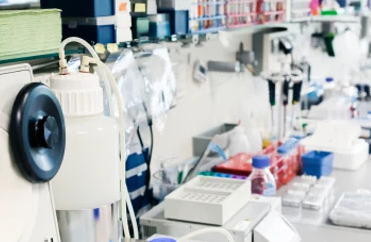Lab Equipment for Scientific Research: Essential Tools for the Modern Laboratory

Scientific research is an ever-evolving field that requires the use of specialised equipment to conduct experiments, analyse data, and draw conclusions. From basic laboratory equipment such as microscopes and centrifuges to more advanced technologies such as an incubator and sequencers, researchers have countless tools to help them push the boundaries of scientific discovery. This article will take a closer look at some of the essential lab equipment used in scientific research.
Microscopes
Microscopes are essential tools in biology, chemistry, and materials science research. They allow researchers to observe the structure and behaviour of microscopic organisms, cells, and materials. Light, electron, and scanning probe microscopes are just a few of the several types of microscopes that are commonly used.
A physical probe is used by scanning probe microscopes to physically scan a specimen’s surface and generate images at the nanoscale.
Centrifuges
Centrifuges spin samples at high speeds to separate components based on their density. They are used in various research applications, such as separating blood components for medical testing, isolating DNA and RNA for genetic research, and purifying proteins for biochemical studies. Several types of centrifuges are available, including ultracentrifuges, which can spin at speeds of up to 100,000 rpm and are used for high-resolution separations.
Spectrometers
Spectrometers are analytical instruments that measure the interaction of light with matter. They are used in various research applications, such as identifying the composition of a substance, measuring the concentration of a chemical, and studying the properties of materials. There are several types of spectrometers available:
UV-Vis spectrometers measure the absorption or transmission of ultraviolet and visible light by a sample, while infrared spectrometers measure the absorption or transmission of infrared radiation. Mass spectrometers measure the mass-to-charge ratio of ions to identify the composition of a substance.
Chromatography Systems
Chromatography systems are analytical instruments used to separate and analyse the components of a mixture. They are used in various research applications, such as separating and purifying proteins, isolating and identifying organic compounds, and characterising the properties of materials. There are several types of chromatography systems available:
Gas chromatography separates volatile organic compounds based on their boiling point and affinity for a stationary phase. In contrast, liquid chromatography separates compounds based on their solubility in a liquid mobile phase and affinity for a stationary phase. Ion chromatography separates ions based on their charge and affinity for a stationary phase.
Incubators
An incubator is a device that provides a controlled environment for the growth and development of organisms, such as bacteria, yeast, and cells. It is commonly used in biology, microbiology, and medical research to culture and study microorganisms and cells. They typically have a temperature control system, humidity control, and sometimes CO2 control to maintain a stable environment suitable for the growing organism. Incubators are essential tools for various research applications, such as testing the efficacy of drugs, developing vaccines, and understanding the physiology of microorganisms. They are also commonly used in clinical laboratories to culture patient specimens for diagnosis of infectious diseases.
Sequencers
Sequencers are analytical instruments used to determine the sequence of nucleotides in DNA or RNA samples. They are used in various research applications, such as studying genetic variation, identifying disease-causing mutations, and characterising the properties of microbial communities.
Conclusion
In conclusion, lab equipment is essential to scientific research. Researchers have countless tools to help them push the boundaries of scientific discovery. Each piece of equipment has unique capabilities and applications, allowing researchers to address a wide range of scientific questions. As technology advances, new and innovative lab equipment will likely be developed, further expanding the possibilities of scientific research. However, even with new tools, the fundamental principles of scientific inquiry remain the same: observation, hypothesis generation, experimentation, and data analysis.







